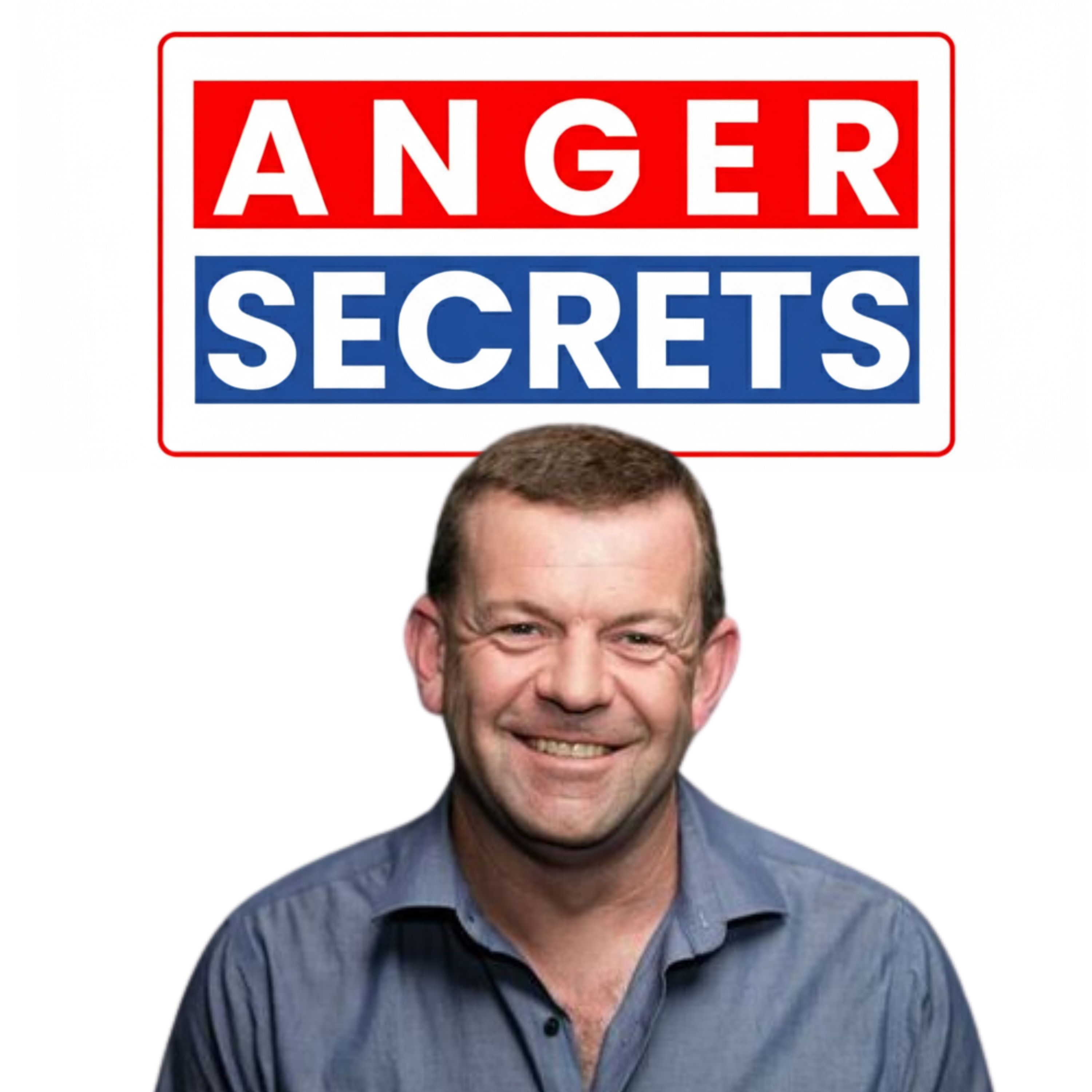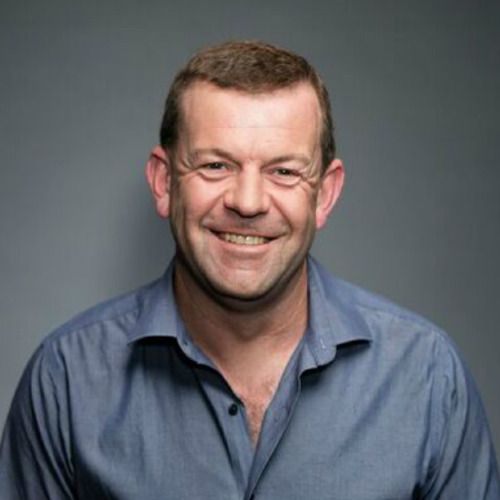Episode 141
141 - It Wasn’t Yelling, But It Was Abuse - Leon's Story
For more information on how to control your anger, visit angersecrets.com.
In this powerful episode, host Alastair Duhs interviews Leon, a courageous man who recently took the step to control his anger.
Initially, Leon didn't realise he had an anger problem. He thought that since he wasn’t yelling or being physical, anger was not an issue for him. Listen as Leon shares how this understanding changed, and how understanding the subtleties of emotional and verbal abuse transformed to approach to anger management.
With his newfound awareness, Leon quickly became a calmer father and partner. In this episode, Leon encourages others to do the same, and especially to recognise the impact of words on the people you love.
Key Takeaways:
- Leon did not believe he had an anger problem, but soon learned that anger could hurt others without being loud or aggressive.
- Awareness of stress and tension levels is essential to manage anger effectively.
- Leon recognised that his tone and words were impacting his family negatively.
- Leon emphasises the importance of positive self-talk for managing emotions.
Links referenced in this episode:
For more information (and FREE resources) of how to control your anger, visit angersecrets.com.
For a FREE training on how to control your anger, visit angersecrets.com/training/.
To learn more about The Complete Anger Management System, visit angersecrets.com/course/.
Transcript
Leon didn't think he had an anger problem.
Speaker A:He wasn't yelling, he wasn't slamming doors.
Speaker A:In fact, he'd never laid a hand on anyone.
Speaker A:But something was wrong.
Speaker A:And deep down, he knew wasn't the volume of his voice that hurt his family.
Speaker A:It was the edge in his words, the way he spoke with tension, blame or silence that left his wife on alert and his daughter shrinking without knowing why.
Speaker A:In this episode, Leon shares what changed the moment he realized that anger doesn't have to be loud to do damage, and how one decision helped him become a calmer, more present father and partner.
Speaker A:If you've ever told yourself, at least I'm not shouting, this is the conversation you need to hear.
Speaker A:Hi there Alist.
Speaker A:I'm Alastair Dewes and you're listening to episode 141 of the Anger Secrets podcast.
Speaker A:If you're new here, welcome.
Speaker A:And if you've been tuning in for a while, I'm really glad you're back.
Speaker A:For over 30 years, I've helped more than 15,000 people control their anger, master their emotions, and build relationships that actually feel good again.
Speaker A:If you want help right now to control your anger, including a free training on how to control your anger in just seven days, head over to my website angersecrets.com.
Speaker A:there's a link there to access that free training.
Speaker A:Or if you'd like to chat personally with me about your situation, you can also book a free 30 minute anger assessment call with me.
Speaker A:I look forward to talking with you.
Speaker A:With that said, let's dive into my interview with Leon.
Speaker A:Welcome to the Anger Secrets podcast.
Speaker A:To begin with, tell me a bit about yourself.
Speaker B:I'm 39.
Speaker B:I run my own custom leather carving business and I enjoy hunting and fishing and camping and all the good stuff in life.
Speaker A:What brought you to my anger management course?
Speaker B:My wife asked me to do a course on anger management because she thought I was getting a little bit angry and I was trying to get some local courses and none of them were available.
Speaker B:And yeah, I bit the bullet and saw this anger management course online and I took the chance.
Speaker B:Cool.
Speaker C:Did you have an anger issue?
Speaker B:Oh yeah, I get a little bit annoyed and that sort of thing, but I didn't think that I had an anger issue.
Speaker C:Okay, and how was starting the course?
Speaker B:Starting the course was good.
Speaker B:I learned a lot straight away and I was able to focus on the course because I had a bit of spare time and plot along and go through it and you know, I learned a lot.
Speaker B:The course was really good and it teaches you more than just how to respond to your anger.
Speaker B:It teaches you about communication and relationships and all the other things that you need to be aware of.
Speaker C:Yep.
Speaker C:What do you reckon the first thing you learned from the course was?
Speaker B:The first thing I learned from the course was the tension scale and awareness.
Speaker B:I really think those are two early on things that I've focused on a lot.
Speaker C:Say a bit more about the awareness.
Speaker B:Side when you start feeling all the signs of anger, like your blood getting hot or your tingly skin, and feelings that you get when you start to get a little bit more annoyed and you can start focusing on those and starting to minimize them.
Speaker C:Yep.
Speaker C:Yep.
Speaker C:So obviously reduce your tension and stress.
Speaker C:Yeah.
Speaker C:What changes do you think you've made since you started the course?
Speaker B:I've made a lot of changes.
Speaker B:My life has definitely changed and I find myself not getting angry anymore because I'm focusing on those awareness levels and the tension scale.
Speaker B:I'm definitely not getting out of control angry of any description because I notice the signs and I'm almost calling them symptoms of anger because you start noticing the different feelings that you're coming across, and then you can start your breathing and you can start cooling yourself down or take yourself away from a situation before you start getting angry so that you can focus on what the actual issue is.
Speaker C:Yeah, that's really cool.
Speaker C:And just tell me again, how much of an issue was anger for you in the past?
Speaker B:When I was younger, I was a really angry young teenager and I've done an anger management course in the past, but I didn't really focus on it because I didn't think it was for me.
Speaker B:I think I do stress out and get a little bit annoyed.
Speaker B:But I think what I've learned from the course, too, is that other people notice what you're not noticing.
Speaker B:And when they feel hurt or verbally abused or anything like that, then your anger has gone to a level that's hurting other people, even if you don't notice it.
Speaker C:Yeah.
Speaker C:So was that happening in your relationship?
Speaker B:I'd say yeah, it would have been.
Speaker B:I probably didn't notice it as much as I can see it now after doing the course, that my anger level, it wasn't as bad as it was in my past.
Speaker B:But I definitely look back at it now and think because it hurt feelings of other people, that it was at a level that I'm now not happy at the level that it was.
Speaker C:So it sounds like your awareness of that has increased.
Speaker C:Has it?
Speaker B:Oh, absolutely.
Speaker B:I'm aware of it all the Time.
Speaker B:And I can better calculate the level now so that I can control it better.
Speaker C:Cool.
Speaker C:Again, greater awareness.
Speaker C:Greater.
Speaker B:Right.
Speaker C:So you're more aware of those tension levels.
Speaker B:Absolutely.
Speaker B:The more aware that you are of the tension levels, the better, because you're noticing it before it's getting out of control or hurting other people a hundred percent.
Speaker C:What's something else you've picked up from the course, do you think?
Speaker B:There's actually quite a lot in the course.
Speaker B:It's hard to put it down to one thing because it's a really good course and there's a lot of it.
Speaker B:You've done a great job on the course, to be honest.
Speaker B:I think a lot of it.
Speaker B:Communication is something that I was failing on too.
Speaker B:And there's topics on communication in the course and just how to not make it all about yourself.
Speaker B:And that there is more than just one person in any conversation or argument or anything like that.
Speaker B:And that's before you even get into the heated levels of an argument to become angry.
Speaker B:And I think that's definitely something that, once again, I'm aware of now that I wasn't aware of in the past is just.
Speaker B:It's not always about you.
Speaker B:And you don't know how the other person is reacting to the words you say or the tone of voice you're using, or just even those can cause a conversation to become a heated discussion.
Speaker C:What else have you learned about communication?
Speaker C:Anything that comes to mind.
Speaker B:Listening.
Speaker B:How to listen to others.
Speaker B:And I think that was something that I wasn't doing a lot of, and I wasn't aware of it because I'd never really been associated with listening as such.
Speaker B:And I think it's something that a lot of people don't do, especially in a relationship, because you've been with a person for so long or you're just around them all the time and you just start throbbing off the information they're giving you.
Speaker B:But it actually doesn't hurt to sit down and listen to what they have to say because that's how they feel.
Speaker B:It's just like when you have feelings about a situation or you've had a hard day and you want to vent a little bit by voicing your opinion on your day.
Speaker B:And you've got to allow that in return.
Speaker C:Yeah, it's very true.
Speaker C:It's very true.
Speaker C:Okay, thanks for that.
Speaker C:What would you say to someone who might be listening to this and thinking about doing the course, but not sure what would you say to that person?
Speaker B:I was skeptical in the beginning, I have to be honest.
Speaker B:But once I actually bit the bullet and started the course, I wouldn't change it for a thing.
Speaker B:And I would absolutely recommend it to people that have had any anger or relationship troubles in their past because it's not just an anger management course, there's a lot more to it.
Speaker B:And I definitely think people should join the course because it helped me a lot and really quickly and I'm able to go back over the course whenever I feel I need to and revise it or do the course again just for a refresher.
Speaker B:I definitely recommend it.
Speaker C:How quickly do you think you made changes?
Speaker B:For myself actually probably the first couple of days because I was focused on the awareness and the tension scale and I think I focused on that quite a lot because it meant a lot to me.
Speaker B:And as soon as I read the part of your course, I can't remember what section it was but it was to do with how the other people react and feel.
Speaker B:And it's a type of abuse that really got me deep because I never wanted to do any kind of violence or abuse even to my family.
Speaker B:And even the abuse of words and tone of voice can affect people more than you realize.
Speaker B:And I think that really struck a chord in me and made me start thinking and change really quickly.
Speaker C:Such are you saying?
Speaker C:Your family were probably affected by things like your tone of voice and you.
Speaker B:Weren'T even aware of that?
Speaker B:Absolutely.
Speaker C:Anything else you'd like to say?
Speaker B:I'd like to add the positive self talk and together we created a positive self talk called precious self talk which I really think is important where you focus on something that you hold near and dear to your heart and is the most precious to you and something that you want to change for like your children or your partner or something in your world in your life that is the most valuable thing to you that you can't even think of living without and that that will definitely guide you every time you start going up attention scale or having self doubt or any of those sort of things.
Speaker B:Absolutely positive self talk and precious self talk.
Speaker C:And what was that for you?
Speaker C:What did you hold close to your heart?
Speaker B:My three year old daughter, she means a lot to me.
Speaker B:She's an amazing young child.
Speaker B:My other two are amazing as well.
Speaker B:But the teenagers, they do their own thing now, they're really good kids.
Speaker B:But the preciousness of a toddler.
Speaker B:Yeah, it's something to hold the whole place.
Speaker C:Yep.
Speaker C:And was it something about the effect on her that you're talking about?
Speaker B:I just think that I don't want her to be around any of that sort of aggression level or anger or abuse.
Speaker B:I never want my daughters to be around any kind of abuse.
Speaker B:And I think the course has just shown me that I was a little bit verbally abusive.
Speaker B:I wasn't physical, but I was definitely a little bit with the tone of my voice and maybe some of the words that I'd say, they weren't quite appropriate for family members.
Speaker B:And when it affected them, I wasn't noticing it.
Speaker B:And that's a form of abuse.
Speaker B:And I didn't realize it, but I do now and I wish I could take it back.
Speaker A:Okay, first, I want to thank Leon for sharing his story.
Speaker A:It takes real courage to face your anger, and it takes even more to speak about it publicly.
Speaker A:Not to shame yourself, but to help others.
Speaker A:That's exactly what Leon did today.
Speaker A:If his story resonated with you, if you've seen parts of yourself in his words, I want you to know that change is possible for you, too.
Speaker A:You can learn to control your anger, you can master your emotions, and you can create calmer, healthier, more connected relationships.
Speaker A:I've helped thousands of people do exactly that, and I'd love to help you too.
Speaker A:Just head over to angersecrets.com and book a free 30 minute anger assessment.
Speaker A:Call with me.
Speaker A:We'll talk about what's going on and I'll help you take the first step forward.
Speaker A:As Leon reminded us, sometimes we don't see how our anger is affecting the people around us until it's already done the damage.
Speaker A:But it doesn't have to stay that way.
Speaker A:With the right tools and support, you can break the cycle and build something better.
Speaker A:Okay, that's it for today's episode.
Speaker A:It wasn't yelling, but it was abuse.
Speaker A:Leon's story.
Speaker A:If this episode was helpful for you, hit that follow button and maybe leave a quick review.
Speaker A:It helps others find the podcast and it might be the exact nudge someone else needs right now.
Speaker A:And remember, if you want a free training on how to control your anger in seven days or a chance to chat one on one with me, just head over to angersecrets.com and if you're ready to get serious about changing how you show up in your relationship, take a look at the complete anger management system@AngerSecrets.com course.
Speaker A:I'd love to help you once and for all.
Speaker A:And finally, remember, you can't control what other people say or do, but you can control yourself.
Speaker A:Your tone, your choices, and how you respond to others.
Speaker A:And that's where your real power lives.
Speaker A:Take care and I'll talk to you soon.
Speaker D:The Anger Secrets Podcast is for general informational purposes only and does not constitute the practice of counseling, psychotherapy, or any other professional health service.
Speaker D:No therapeutic relationship is implied or created by this podcast.
Speaker D:If you have mental health concerns of any type of please seek out the help of a local mental health professional.


